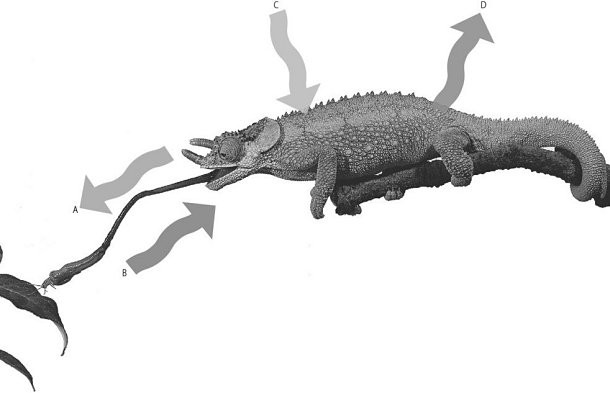The proteobacterium Rhizobium lives in a close association with legume roots, providing a source of nitrogen for the plant. In return, the plant provides Rhizobium with food produced by photosynthesis. In this relationship, Rhizobium is an example of a(n):
A. pathogen
B. parasite
C. producer
D. methanogen
E. mutualist
E. mutualist
You might also like to view...
Since energy cannot be created, which arrow represents the energy that will be converted to chemical energy the chameleon can later use?
A. Arrow A, the tongue extending B. Arrow B, the insect being eaten C. Arrow C, sunlight striking the chameleon D. Arrow D, heat radiating from the chameleon
Which of the following is a way to prevent attenuation and maintain virulence in a bacterium?
A) laboratory subculture B) animal passage C) polymerase chain reaction (PCR) D) antibiotic therapy
The plant hormone ____ is apparently synthesized from carotenoid pigments inside plastids
a. salicylic acid b. cytokinin c. abscisic acid d. jasmonate e. brassinosteroid
Which of the following statements concerning
production of bryophyte reproductive cells is true? a. Spores and gametes are produced by meiosis. b. Spores and gametes are produced by mitosis. c. Spores are produced by meiosis, whereas gametes are produced by mitosis. d. Spores are produced by mitosis, whereas gametes are produced by meiosis. e. Spores and gametes are both used for sexual reproduction.